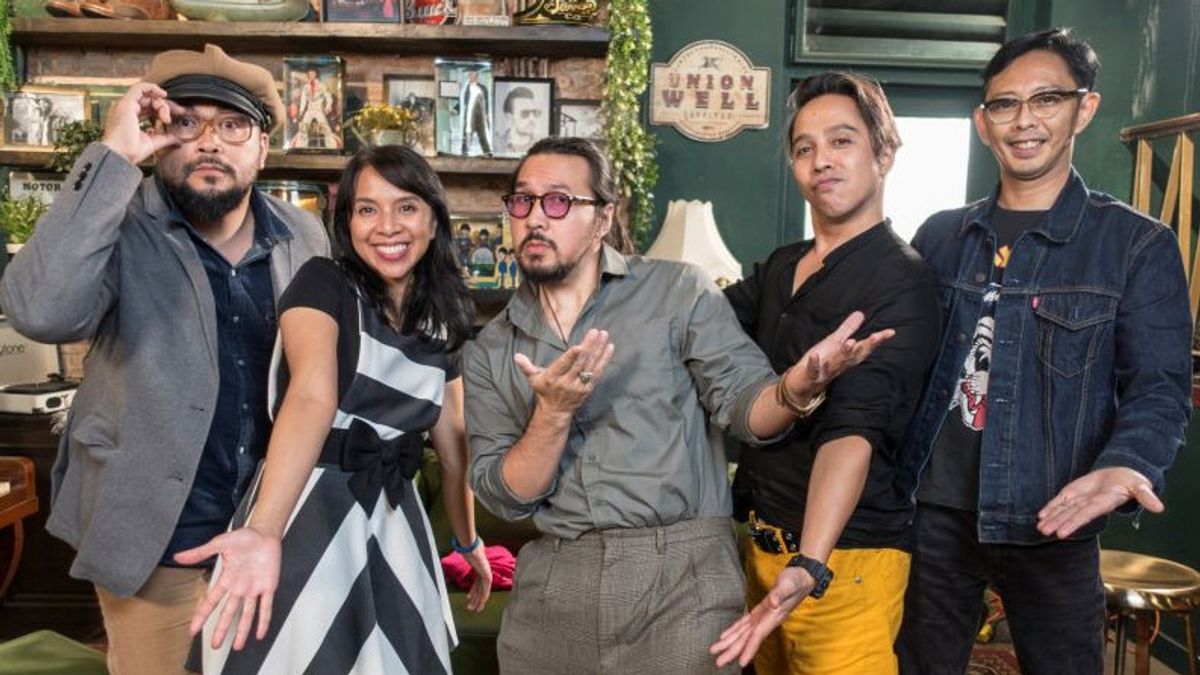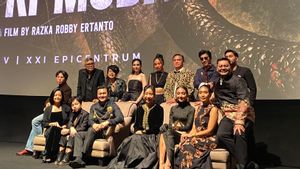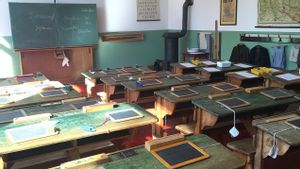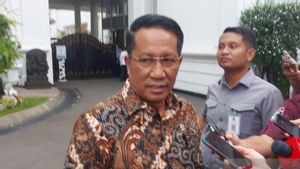JAKARTA - Mocca band officially launched the second single titled "Happy" from the mini album "Funfair" on Friday, January 28, on all digital music platforms. Listeners who bought the album's physical CD since November 2021 have already listened to this song first.
In this single, Mocca collaborated with David Bayu. For the members of Mocca, David Bayu and his band, became the inspiration for Mocca to grow and develop as a band. The desire to collaborate with David has been a dream since Mocca released their first album.
Through the power of direct messages on social media, Mocca and David Bayu had the opportunity to work together. It started with Mocca appearing on #GACOR, a casual chat and jam session with David on David Bayu Tube's Youtube channel.
At the end of April 2021, David Bayu entered the recording studio with Mocca for the duet song Happy. At that time, the vocalist Arina Ephipania was in quarantine for COVID-19, so the recording process for Arina and David was done separately.
Meanwhile, David, Riko, Indra, and Toma finished the recording process together in one day. David Bayu even provided backing vocals for several songs on the mini album "Funfair".
“I am very happy to be working with David Bayu, because this is like a dream come true. This duet is an honor and an experience that I will never forget," said Toma Pratama, the bassist, quoted from ANTARA, Friday, January 28.
The new color in the duet version of the song "Happy", where in the chorus, David provides two voices, thus making the difference between the original version, which all have only one voice. The intro part has also been changed to now use the flute and the interlude part, Riko Prayitno plays the kazoo.
"David sounds clear that he really enjoys playing his song, sounds flexible and swinging, happy to hear it," said Arina, who wrote Happy's song.
"Happy" is one of the most popular songs from Mocca's song catalog. This song was first released on the album in the soundtrack of the film "For Rena" and became a song that many school children in South Korea sang, and was used in several South Korean dramas, variety shows, and films.
The English, Chinese, Japanese, Arabic, and French versions are automatically generated by the AI. So there may still be inaccuracies in translating, please always see Indonesian as our main language. (system supported by DigitalSiber.id)













